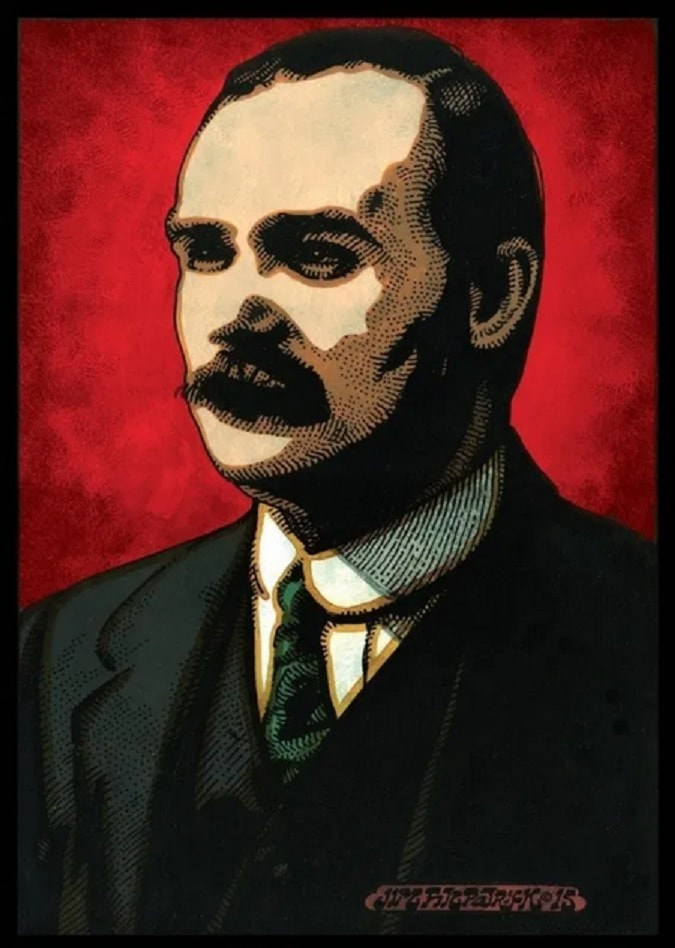In 1912 he founded the Irish Labour Party with Big Jim Larkin. Four years later as leader of the Irish Citizen Army he signed the Proclamation of the Irish Republic and on 12th May 1916, wounded and strapped to a chair, he was executed by a British military firing squad.
Connolly took a broad and generous view of how people of differing political views could agree to campaign together to solve a single priority issue. With nationalists, he was part of the committee formed in 1898 to commemorate the 1798 Rising. He was an enthusiastic supporter of the Irish language and a strong voice in favour of votes for women.
Ahead of his time and in advance of the more progressive political attitudes of today, he was a convinced feminist. In his day, he was described as ‘the soundest and most thorough-going feminist of all the Irish Labour men’. In his wonderful book ‘The Reconquest of Ireland’, he summed up his view:
‘The worker is the slave of capitalist society, the female worker is the slave of that slave’.
As a socialist he believed that life is a constant struggle between ‘Haves’ and ‘Have Nots’ and he stood with the ‘Have Nots’. Connolly envisaged a society where economic and political power would pass to the ‘Have Nots’, who would form a co-operative society where wealth, resources, education and opportunity would be shared fairly by all – ‘from each according to their ability, to each according to their needs’.
In his other great work ‘Labour in Irish History’, Connolly argued that in the struggle to free Ireland only the ‘Have Nots’ could be relied on to finish the task. The ‘Haves’ have always reached a cosy accommodation with foreign oppressors. He believed that ‘The cause of Labour is the cause of Ireland; the cause of Ireland is the cause of Labour’.
As General Secretary of the Irish Transport and General Workers’ Union (a predecessor of SIPTU), Connolly fought for better pay and conditions for unskilled workers – the precarious workers and ‘zero hours’ contracts of his day – women and men who, literally, stood in line each morning so that the bosses could decide who would work that day or not.
The struggle of the ‘Have Nots’ for justice continues today, for example the rights of women and LGBTQI, the search for an agreed 32-county Ireland, etc. The Covid-19 crisis has also shown us that the least paid workers are still the most important in our society – but are mostly ignored by ‘The Haves’. These are the 2020 versions of the issues James Connolly faced. So, his ideas and life’s work are more relevant today than ever. Not perhaps as a ‘cut-and-paste’ blueprint or detailed plan of action, but as a set of ideals and principles to inspire us to live, work and campaign for what he believed in.
When you think about it, then, Connolly today is much more than just a name on a train station. He remains alive and relevant in his works ‘The Reconquest of Ireland’ and ‘Labour in Irish History’, making him more than a 1916 rebel, an address, or a man restrained in his time.
This post comes from “The Twelve O’Clock Blog” written by Liam Cahill (@LiamCahill2013). Originally titled “Connolly. Just a Name on a Station or Hospital?”. Picture by Jim Fitzpatrick available from jimfitzpatrick.com

 RSS Feed
RSS Feed
